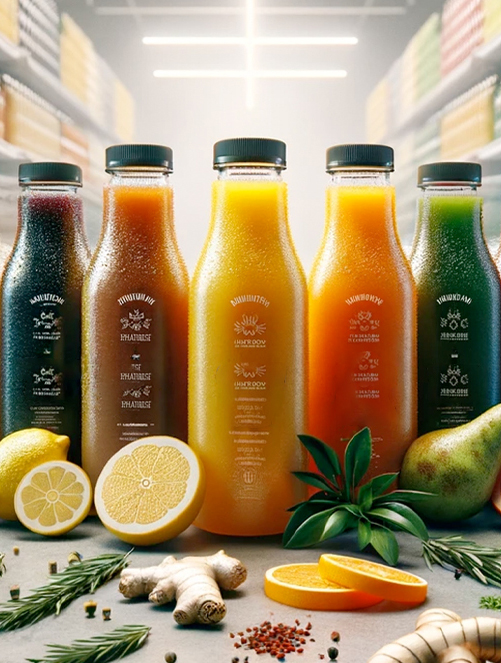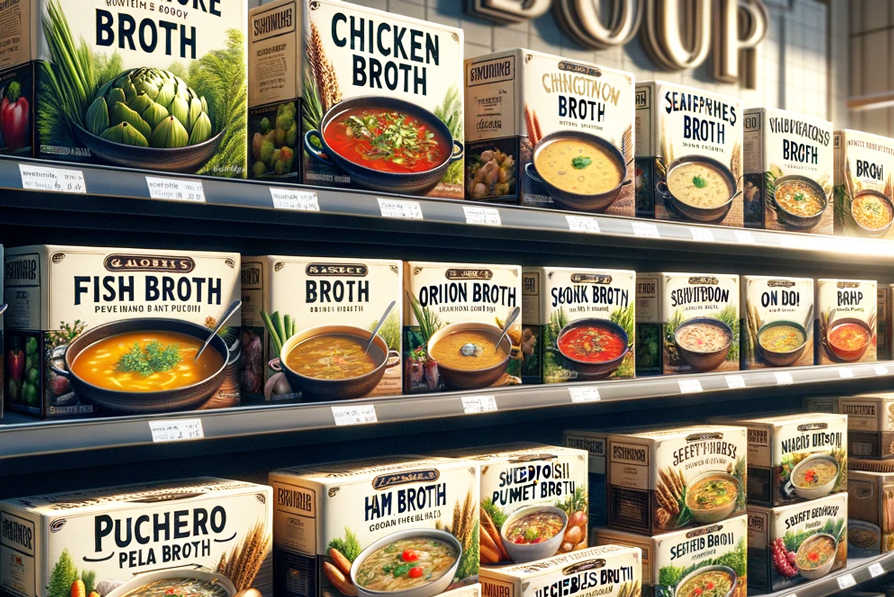Elevating Your Shelves with Trending Organic Products
As the demand for healthier, sustainable options grows, retailers have a golden opportunity to tap into this lucrative market. This article will guide you through three key product sections that are not only elevating shelves but also driving sales and attracting a broader customer base: organic cereals and breakfast options, organic juices, and organic soups. We’ll explore why these categories are essential for your inventory and how they can contribute to your business’s growth and success.
For an in-depth understanding of organic market trends and consumer insights, refer to the Organic Trade Association’s Organic Market Overview.
Organic Cereals and Breakfast Options
Breakfast is often hailed as the most important meal of the day, and for a good reason. It sets the tone for energy levels and eating habits. As consumers become more health-conscious, their breakfast choices are shifting towards organic options. Organic cereals, flakes, granola, and puffed products offer the perfect blend of convenience and quality. They cater to a growing demographic that values not only the nutritional content of their food but also its environmental impact.
Expanding your range to include diverse organic cereals and breakfast options can significantly enhance your appeal to this discerning market segment. These products are not just food; they’re a statement of lifestyle and values. By stocking them, you’re not only increasing your sales potential but also aligning your brand with the values of sustainability and health consciousness, which can foster a loyal customer base and encourage higher spend per visit. Check out our blog Latest Trends in Organic Cereals, Flours, and Breakfast Foods Market.

Organic Juices

In the beverage sector, organic juices represent a fast-growing niche that promises not only to meet market needs but also to elevate your brand’s appeal. Consumers are increasingly seeking out drinks that are not just refreshing but also nutritious and free from artificial additives. This trend towards organic juices opens up a new avenue for retailers to offer premium products that can command higher prices and, consequently, higher profit margins.
By diversifying your organic juice selection, you’re tapping into a market that values quality and health benefits. These consumers are willing to pay a premium for products that align with their lifestyle choices, making organic juices a profitable addition to your inventory. Additionally, the variety within the organic juice sector allows for a broad appeal, catering to tastes ranging from classic orange and apple to exotic blends that intrigue and attract customers. Check out our latest blog about The Trending Organic Drinks Ingredients.
Organic Soups and Broths
The organic soups and broths category offers a unique opportunity for retailers. These products appeal to time-strapped consumers looking for quick, healthy meal options that don’t compromise on taste or nutritional value. By incorporating organic soups and broths into your inventory, you’re not just offering convenience; you’re providing a solution that aligns with the growing trend towards mindful eating.
This category’s appeal is twofold: it attracts customers seeking convenience and those looking for healthful, organic options. This dual advantage contributes to increased basket sizes and repeat purchases, as consumers come to rely on these products for their meal planning. Moreover, the diversity within the organic soup and broth market—from hearty vegetable soups to rich, flavorful broths—ensures that there’s something to satisfy every palate. Check out this comprehensive guide about Organic Soups and Broths.

Why Focus on These Sections?
Focusing on organic cereals and breakfast options, organic juices, and organic soups aligns with strategic business goals to increase profitability and sales volume. These categories have been carefully selected for their potential to attract a wide customer base, encourage higher spend per visit, and distinguish your offerings in a crowded market. By prioritizing these sections, you’re not just responding to current trends; you’re setting your business up for future success.
These organic selections cater to the growing segment of health-conscious consumers who value both the quality of the products they consume and the ethical and environmental practices of the brands they support. By meeting these needs, you’re not only enhancing your inventory but also building a brand that resonates with the values of your customers.
FAQs
1. Why are organic products becoming so popular?
Organic products are gaining popularity due to increased awareness of health, environmental, and ethical concerns. Consumers are more informed and selective about their purchases, seeking products that are free from harmful pesticides and additives.
2. How can offering organic options impact my sales?
Offering organic options can significantly impact sales by attracting a broader customer base, encouraging higher spend per visit, and building a loyal customer base that values your commitment to quality and sustainability.
3. Are organic products more expensive for retailers to stock?
While organic products may have higher acquisition costs due to more stringent farming and production methods, they can command higher retail prices, leading to potentially higher profit margins.
4. How can I market these organic sections effectively?
Effective marketing strategies include highlighting the health and environmental benefits of organic products, showcasing customer testimonials, and leveraging social media to reach health-conscious consumers.
5. Can expanding organic selections improve customer loyalty?
Yes, offering a wide range of organic products can improve customer loyalty by aligning your brand with the values and lifestyle choices of your customers, encouraging repeat business.
6. How do organic product offerings set my store apart from competitors?
Organic product offerings can distinguish your store by catering to a niche market of health-conscious consumers, showcasing your commitment to quality, and providing unique products that may not be available at standard retailers.
Conclusion
Incorporating organic cereals and breakfast options, organic juices, and organic soups into your inventory is a strategic move that can significantly elevate your shelves. These categories not only respond to current consumer trends but also offer the potential for increased sales, higher profit margins, and a loyal customer base. By focusing on these sections, you’re not just selling products; you’re offering a lifestyle choice that resonates with the values of health-conscious consumers. Elevate your inventory strategy with these organic selections, and position your business for stronger sales and enhanced profitability. Contact us now! to explore how we can support your journey towards a more profitable and sustainable product lineup.






